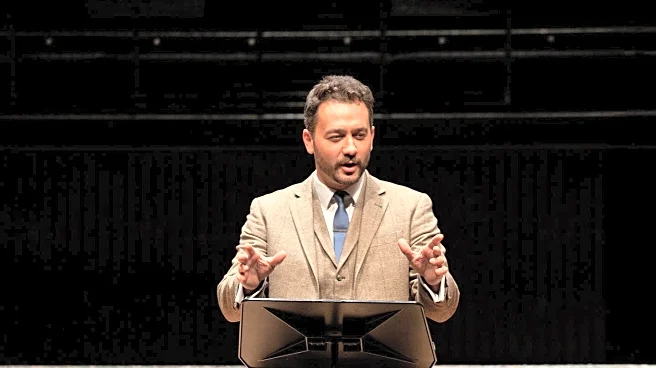What's Happening?
The suspension of Jimmy Kimmel by ABC has brought attention to the FCC's influence on broadcasters, particularly under the Trump administration. FCC Chair Brendan Carr has been criticized for threatening to revoke broadcast licenses over political speech, a move seen as unprecedented and coercive. Telecommunications lawyer Andrew Jay Schwartzman argues that Carr's actions are legally unfounded, as the FCC lacks authority to censor content or revoke licenses based on political pressure. The situation underscores tensions between regulatory power and free speech rights.
Why It's Important?
The controversy surrounding Jimmy Kimmel's suspension highlights the delicate balance between government regulation and media freedom. The FCC's actions, perceived as politically motivated, could set a concerning precedent for future administrations, potentially leading to increased censorship and reduced media independence. This situation raises important questions about the role of regulatory bodies in protecting or restricting free speech, and the potential impact on democratic discourse and media operations.
Beyond the Headlines
The FCC's involvement in media regulation reflects broader concerns about governmental influence over public discourse. The potential misuse of regulatory power to suppress dissent poses ethical and legal challenges, emphasizing the need for clear boundaries and accountability. As media landscapes evolve, ensuring that regulatory practices uphold democratic values and protect free speech becomes increasingly critical.









